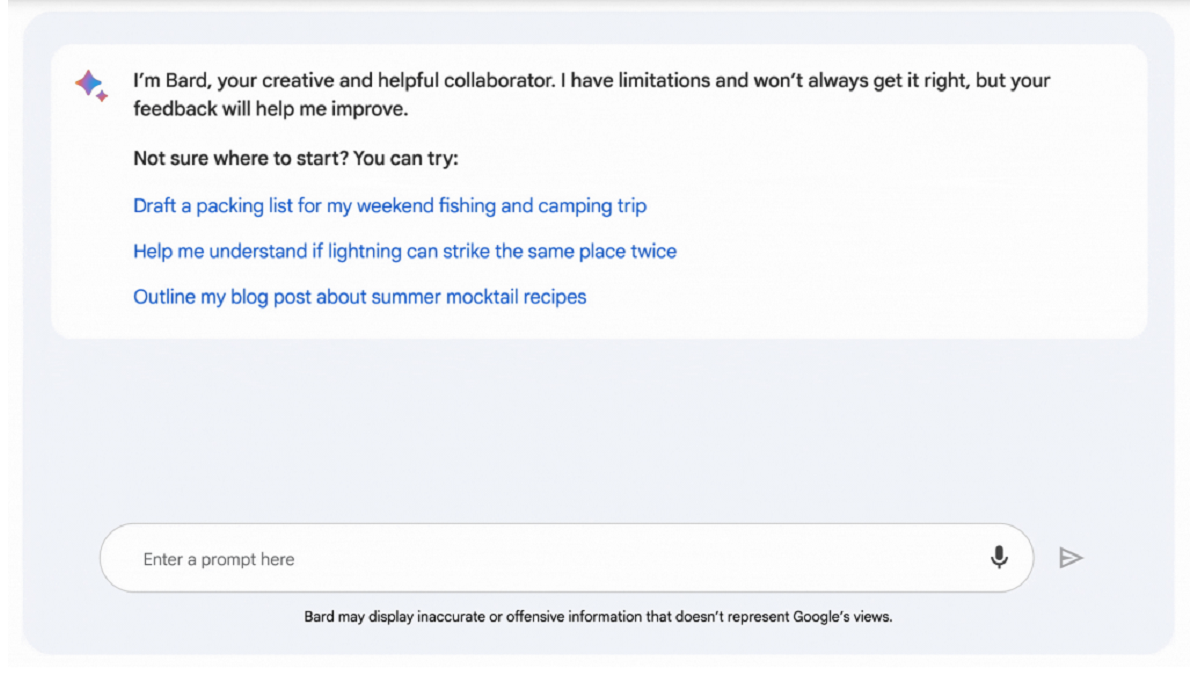The AI battle is underway and as it won’t be ending anytime soon, Google has finally launched its Bard chatbot as it aims to compete against OpenAI’s GPT-4 and Microsoft’s Copilot.
Google says Bard can be used to boost productivity, accelerate ideas and fuel curiosity. “You might ask Bard to give you tips to reach your goal of reading more books this year, explain quantum physics in simple terms or spark your creativity by outlining a blog post,” the search giant said.
The tech company adds that Bard will run separately from its widely used Google Search engine. “We’ve learned a lot so far by testing Bard, and the next critical step in improving it is to get feedback from more people.”
Google’s Bard is powered by a research large language model (LLM), “Specifically a lightweight and optimised version of LaMDA, and will be updated with newer, more capable models over time” said Google.
Bard is also grounded in Google Search results, providing the AI with an additional layer of training that’ll lead to less contradiction with false or incorrect information.
“We continue to see that the more people use them, the better LLMs get at predicting what responses might be helpful,” said Google. Adding that although LLMs are an exciting technology, they aren’t without their faults.
“Because they learn from a wide range of information that reflects real-world biases and stereotypes, those sometimes show up in their outputs. And they can provide inaccurate, misleading or false information while presenting it confidently.”
A launchpad for creativity
Speaking with BBC, Google senior product director Jack Krawczyk said that Bard is, “An experiment” and is hopeful people will use it as a, “Launchpad for creativity.”
“So much of the [media] coverage is that AI is the hero. I think the human is the hero and large language models are here to help unlock creativity,” said Krawczyk.
Google is currently granting Bard access to users who are aged 18 and above and will closely monitor the system, “Guided by our AI Principles,” as it works to improve quality and safety.
“We’ll continue to improve Bard and add capabilities, including coding, more languages and multimodal experiences.” Google also says that feedback is highly important and with it, “Bard will keep getting better and better.”
Early access to Bard is currently available in the US and UK and will gradually expand to more countries and languages.
Isa Muhammad is a writer and video game journalist covering many aspects of entertainment media including the film industry. He's steadily writing his way to the sharp end of journalism and enjoys staying informed. If he's not reading, playing video games or catching up on his favourite TV series, then he's probably writing about them.



































